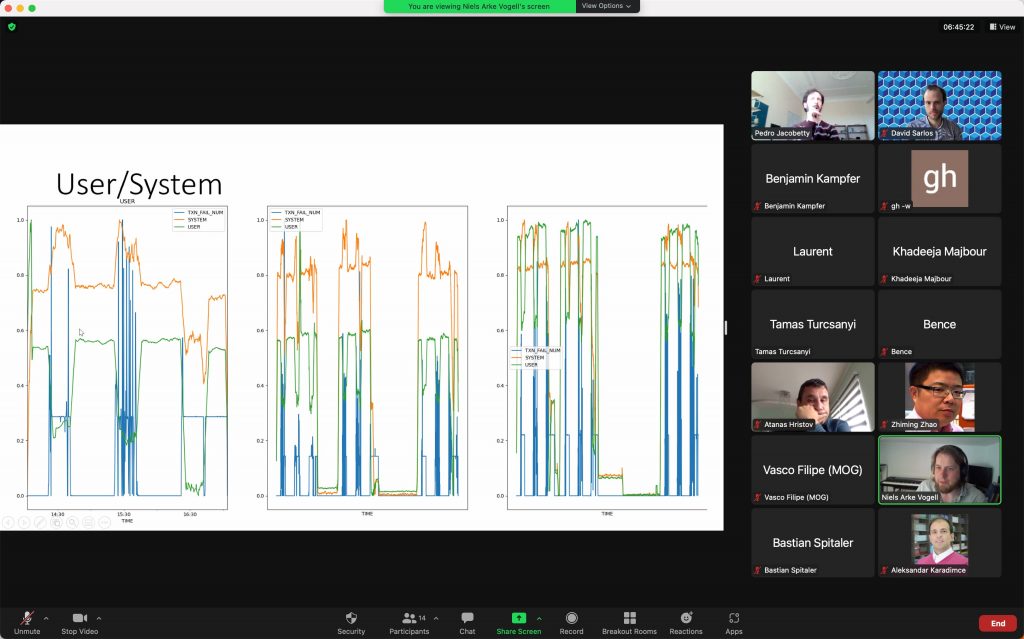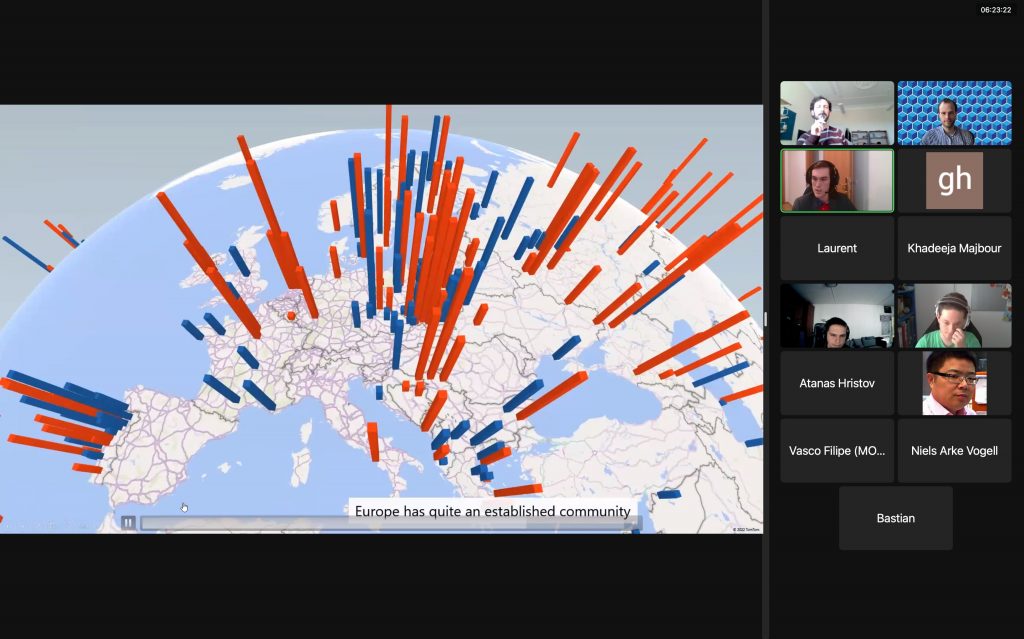The ARTICONF project sets up several joint communication and exploitation activities to maximise the reach and engagement of identified stakeholders. The ARTICONF Datathon, which took place on April 21st 2022, is one of those joint exploitation activities.
This Datathon, part of a holistic approach that seeks to maximise open access knowledge sharing from project partners to the general public while involving stakeholders interested in decentralised applications and the future of social media, was a major event for ARTICONF.
Previously, the project used the video opinion discussion use case to initiate Experts’ Vision Chats about the Future of Social Media, Citizen Journalism and Infodemics together with other Horizon 2020 projects (HELIOS and EUNOMIA) to engage stakeholders in an inclusive discussion. The general public participated in these discussions by asking questions to members of those projects.
Furthermore, knowledge bases were co-created by the project partners to ensure central Decentralised App (DApp) stakeholders (DApp Explorers and DApp Developers) can access critical information about noteworthy themes of the ARTICONF project, namely:
- Blockchains and user rights under EU data protection;
- Federated Trust;
- Sustainable collaborative economy;
- Time-critical trustworthy crowdsourcing.
The ARTICONF project, funded by the European Commission, started its Research In Action period in January 2019. With the project period ending soon, the Communication Workgroup is working on ensuring the continuity of the exploitation activities even after the project ends.
In April 2022 (M40), the ARTICONF Datathon event gathered participants from different backgrounds to exploit datasets of the ARTICONF tools. Participation was open to the general public, and the Datathon was disseminated across all ARTICONF and partners’ channels, making the Datathon an essential joint exploitation activity.
All partners were involved in the search for Datathon participants from the relevant fields of data science. The event’s goal was to uncover new insights about a decentralised social media ecosystem. The event dissemination strategy generated 438 direct visits to the ARTICONF Datathon webpage, where 62 people started the application to participate. Eventually, the Datathlon panel accepted 28 datathonist applications for the event, and ten individuals effectively participated in the Datathon. The datathon participants needed to analyse and visualise the data to come up with possible analytics, graphs and charts. The objective is to generate actionable insights from the data.
The panel offered four datasets as individual challenges for the participating teams:
- Video Opinion Discussion: Participants received the anonymised TIC (on-chain) video discussion moderation events for real-world use case deployment in film festivals (PÖFF Tallinn Black Nights Film Festival, Seattle Film Festival) and Amnesty International discussions. Data was provided in CSV format, representing 4000 moderation events, plus additional usage data.
- DApp monitoring: Participants received infrastructure monitoring data collected from a Decentralized Application in a CSV file. Initial suggestions for analysis involved visualising the change in different metrics, checking the relation of anomalies with different metrics, defining performance anomaly detection requirements such as high accuracy and developing detection methods based on needs.
- Car-sharing: Participants received the ARTICONF data of events for the carsharing use case in CSV format. Some initial suggestions involved analysing and visualising the communities’ evolution, which can be of utmost importance for business productivity. Other recommendations were to look into how to increase the ROI for carsharing companies and private vehicle owners, classify users and set strategies to target users, identify correlations between the vehicle (model, colour, year and other attributes) and demand, draw a heat map of vehicles and users with a higher reputation.
- Crowd journalism: Participants received CSV format’s chaincode data collected by the crowd journalism application. Suggestions involved identifying locations and times with more user participation, establishing relations between the type of event and videos created, purchased, or classified, recommending videos based on past user purchases, and providing a price range to a video based on its properties.
Towards the end of the Datathon day, participants had around 15-20 minutes to present their work using slides and charts. A panel of five juries, delegated by the Communication Workgroup from the ARTICONF partner teams, selected the winning teams. The panel evaluation criteria considered the following issues:
- Present the initial ideas, research questions, concerns, and why they are relevant;
- Why is the solution exciting and novel, and what are its benefits;
- Present the results, findings and interpretations without getting stuck in details.


This virtual event provided an excellent opportunity for the participants to connect, learn and win amazing prizes. All of the presenting winners are receiving a #RaspberryPi voucher and winners receive a free annual vialog.io subscription. Following the event, the organisers received great feedback via email, such as this one from Niels Arke V. datathonist:
“Thank you for organising this event. It was a cool opportunity to work on some unknown datasets and get a further glimpse into the field of data science. I especially liked the presented results so that everybody could learn from the others as well.”
The participants and the jury panel enjoyed the event. The datathon provided compelling insights from the data analysed and generated excitement. However, the organisers concluded that in the case of a virtual datathon, more time for participants to work with the data would have been beneficial. This participant feedback is also the most quoted. Therefore, the Communication Workgroup suggests that the ARTICONF teams plan and execute similar events but with two to seven days between kickoff and presentations to maximise their potential.
The consortium realises the need for an actionable joint exploitation strategy and discussed during its weekly meetings and their Budapest physical meetup the best strategy for individual asset exploitation and joint exploitation within a foreseen non-for-profit framework.
ARTICONF will continue to focus on promoting decentralised applications as a whole and Blockchain as a Service as a viable business model. The partners continue to develop DApp tech and create links between the industry, academy, and policymakers of achieving market consolidation post-project period.
This blog post was written by the Vialog team in April 2022.
< Thanks for reading. We are curious to hear from you. Get in touch with us and let us know what you think. >